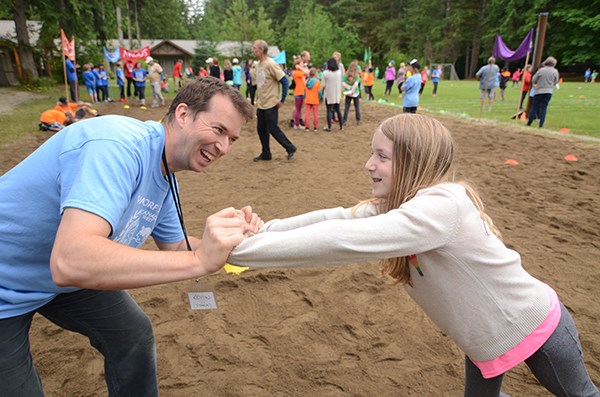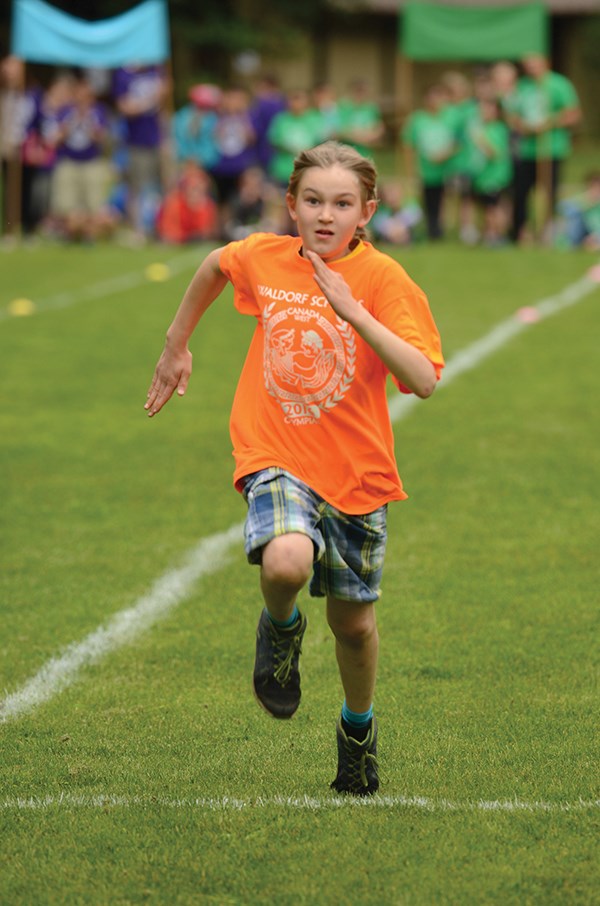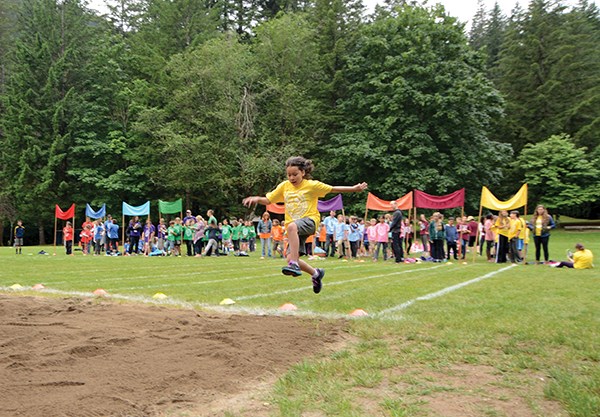Thirteen Squamish youth went to the 2016 Olympics a little early this year.
After training for more than six months, Grade 5 students from Cedar Valley Waldorf School packed their bags and headed to a camp just outside of Hope, B.C., where they met students from eight other Waldorf schools from B.C. and Alberta last week from Tuesday to Friday.
Close to 150 students in total came together for the Canada West 2016 Waldorf Olympiad to participate in five traditional pentathlon events: sprinting, long jump, wrestling, discus and javelin.
Cedar Valley teacher Ralf Hoerger said students had learned about ancient Greece, Mesopotamia, Persia, Egypt and India and trained for the Greek-style games with as much emphasis on form and beauty as on distance and measure.
“The Greek culture, as demonstrated in their art, was the most balanced of the ancient civilizations,” he explained. “At this age, the students are poised between childhood and adolescence. They are about to experience a jump in consciousness. They are outwardly interested in the world around them, and this material really brings that out.”
Referred to as citizens, students are split up amongst their peers from other schools and live in their respective “city-state” for the three days with a dedicated “king” and “queen” – parents acting as full-time chaperones.

Parent Kevin Hardy, whose daughter Erin took part in the games, said he leapt at the chance to play king for the week. “I recognize that the teenage years are coming and there will be more emphasis on friends over family. This has been great to have father-daughter time. It’s been a bonding moment,” said Hardy, who took holidays from his job as a manager at BC Lotteries Corp.
On the first full day, the city-states practised together, wearing t-shirts in colours corresponding to their banners, and went through each event several times gaining tips and feedback from “witnesses,” or coaches, who also kept track of points based on form, dynamics and measure.
At the end of the day, the grand total was shared with the athletes: They had earned a collective 3,978 points. The witnesses said they were impressed with the skill of the group, and the goal would be to try and raise that number by about 20 per cent.
The next day, donning white tunics and colourful sashes to distinguish each city-state, the athletes competed in earnest.
At the close of the games, head witness Les Tulloch told the children their grand total. They had earned 5,510 points – a huge improvement from the day before. A huge cheer erupted, then the skies opened up and big fat raindrops began to fall.
“You all should be very proud of yourselves,” Tulloch told the group in a booming voice.
“Not only did you elevate your abilities and your performances, you staved off the rain and created an umbrella over your games. All this incredible energy you put into your Olympics was recognized, and you were rewarded.”
Eleven-year-old Mira Hull said she felt honoured receiving her medal in the intimate ceremony.
“The medals are really quite beautiful, and very meaningful,” she said. “Our witness was very specific in telling us what we did and how we performed and improved. They said things about each of us, like we shot out like a cannon, or held our circle really well while we wrestled. They knew how fast we ran and if we held our form. I’ve been wearing my medal all day.”




